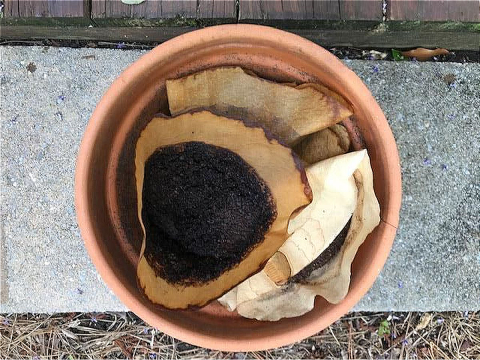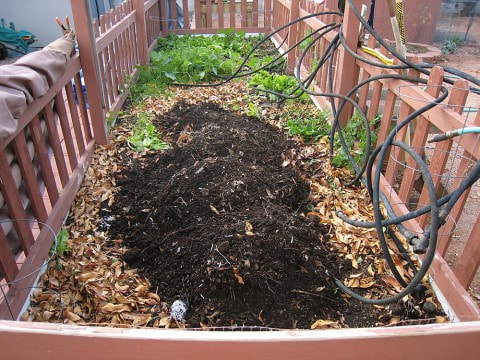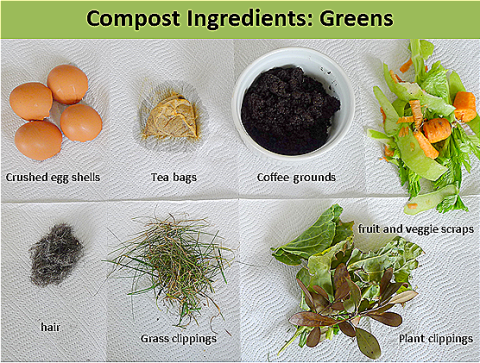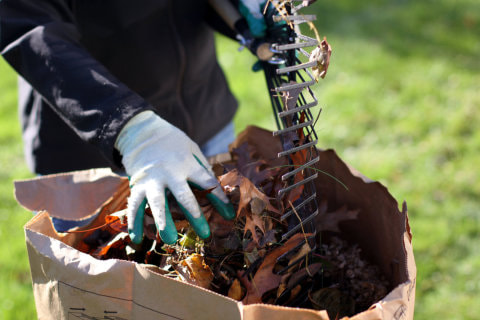A Quick And Simple Guide to Coffee Composting
Why should you compost in the first place? |
Coffee grounds have a colorful history of clogging sinks and leaking out of garbage bags — it’s easy to make coffee, but what do you do with the soggy aftermath? We recommend you compost it! … And no coffee grounds are better for composting than those from 100% organic coffees like the ones we carry at One World. Organic coffee isn’t just better for the health of coffee drinkers and producers; it’s also better for your garden! Before we dive into the benefits of composting coffee grounds (particularly of the organic variety), let’s review why composting is such a great idea general. |
If you’re already composting, you know what a win-win this eco-friendly practice is. If not, it’s worth considering for these reasons.
Composting:
Many of us think it’s not really a big deal if we throw out our unused veggie scraps — I mean, they’ll biodegrade wherever they wind up, right? They will, but at significant cost ...
Plant waste that breaks down in landfills does so without oxygen, just as it might in a cow’s stomach, creating huge amounts of methane gas, a greenhouse gas 21-times worse than CO2! So, there is a real environmental cost to not being vigilant with our plant waste.
For more information on the benefits of composting and how to get started, visit Green Action Centre’s website here.
Composting:
- Saves money on fertilizers
- Reduces organic waste in landfills (we’ll discuss why this is important below)
- Improves the health and quality of soil
- Reduces our carbon footprint by cutting down emissions of vehicles needed to transport waste
Many of us think it’s not really a big deal if we throw out our unused veggie scraps — I mean, they’ll biodegrade wherever they wind up, right? They will, but at significant cost ...
Plant waste that breaks down in landfills does so without oxygen, just as it might in a cow’s stomach, creating huge amounts of methane gas, a greenhouse gas 21-times worse than CO2! So, there is a real environmental cost to not being vigilant with our plant waste.
For more information on the benefits of composting and how to get started, visit Green Action Centre’s website here.
Why compost coffee grounds?
|
We now know that composting plant material is a very important thing for the survival of our planet and, ultimately, our long term wellbeing. Composting coffee grounds, however, offers a number of special benefits.
Coffee grounds:
|
Is coffee a green or brown compost material?
For composting, you need a ratio of 4:1 brown-to-green material — and coffee grounds are an excellent candidate for that green compost material.
Green compost materials make up the “wet ingredients” of the compost pile. These are often recently growing plant matter like food scraps, cut grass, or coffee grounds, as well as manure. Green compost material introduces the essential element of nitrogen to the compost which attracts important microbes and gives them the necessary tools to help break down the contents of the pile.
Brown compost materials include dead leaves, straw, sawdust, twigs and even newspaper, which is usually printed with soy-based inks. This is the necessary nutrition for the organisms that will work their magic on the pile.
Green compost materials make up the “wet ingredients” of the compost pile. These are often recently growing plant matter like food scraps, cut grass, or coffee grounds, as well as manure. Green compost material introduces the essential element of nitrogen to the compost which attracts important microbes and gives them the necessary tools to help break down the contents of the pile.
Brown compost materials include dead leaves, straw, sawdust, twigs and even newspaper, which is usually printed with soy-based inks. This is the necessary nutrition for the organisms that will work their magic on the pile.
Getting the best results with your compost pileThe tips below will get your coffee compost off to a good start and help you reap the rewards of a great compost pile as quickly as possible.
|
And remember that organic coffee will always give you the best results and most nutritious plants from your compost!
Favoring organic materials in compost piles ensures the long term health of your soil by adding higher quality nutrients to it and not introducing unwelcome pesticide residues. One World makes it easy to get the best grounds for your composts (and the best quality coffee too) with our online store and free delivery on local orders. |





